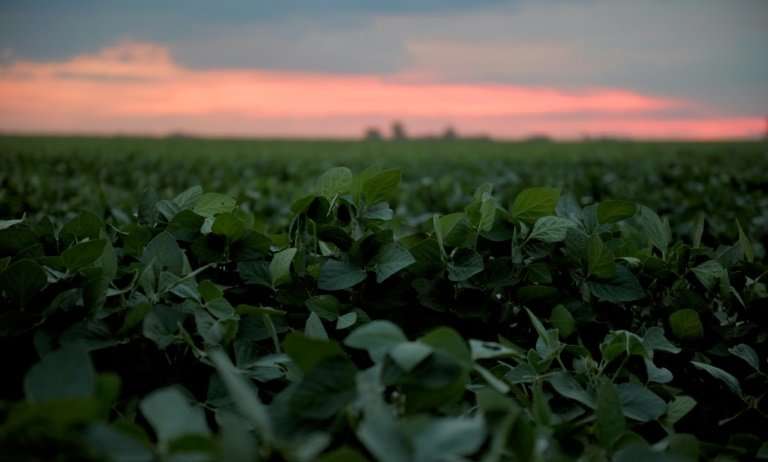Soybean fields in Brazil and other South American countries are often fumigated with glyphosate, a weed-killer which is "probably carcinogenic" according to the World Health Organization (WHO), but which is needed to maintain crops of transgenic seeds
Brazil's government is contesting a court suspension of licenses for products with glyphosate, one of the most common industrial weedkillers and the subject of a high-profile US case against agrochemical colossus Monsanto.
A federal judge in the capital Brasilia last week ruled that "licenses for all products" with the chemical must be suspended within 30 days. Also in the ban are the chemicals thiram and abamectin.
The suspension is to continue until the government sanitary agency completes a "toxicological reevaluation," the ruling said.
Brazil's government promises to appeal, given the importance of glyphosate to Brazil's huge agriculture industry, the world's biggest exporter of soya.
"The whole direct planting system is based on glyphosate," Agriculture Minister Blairo Maggi told Valor financial daily on Thursday.
Anvisa, the Brazilian sanitary authority, told AFP it had "not been notified" of the court ruling.
The row comes as a California jury is considering a case alleging that Monsanto has failed to warn about the alleged cancer risks from a glyphosate-based product called Roundup.
"As with all weedkillers, glyphosate is routinely reviewed by the regulatory authorities so that it can be used safely," Monsanto said in a statement in Brazil.
German-based Bayer, which recently acquired Monsanto in a deal valued at about $62 billion, told AFP it had called on the Brazilian government "to take the necessary measures to cancel this (court) decision."
© 2018 AFP






















